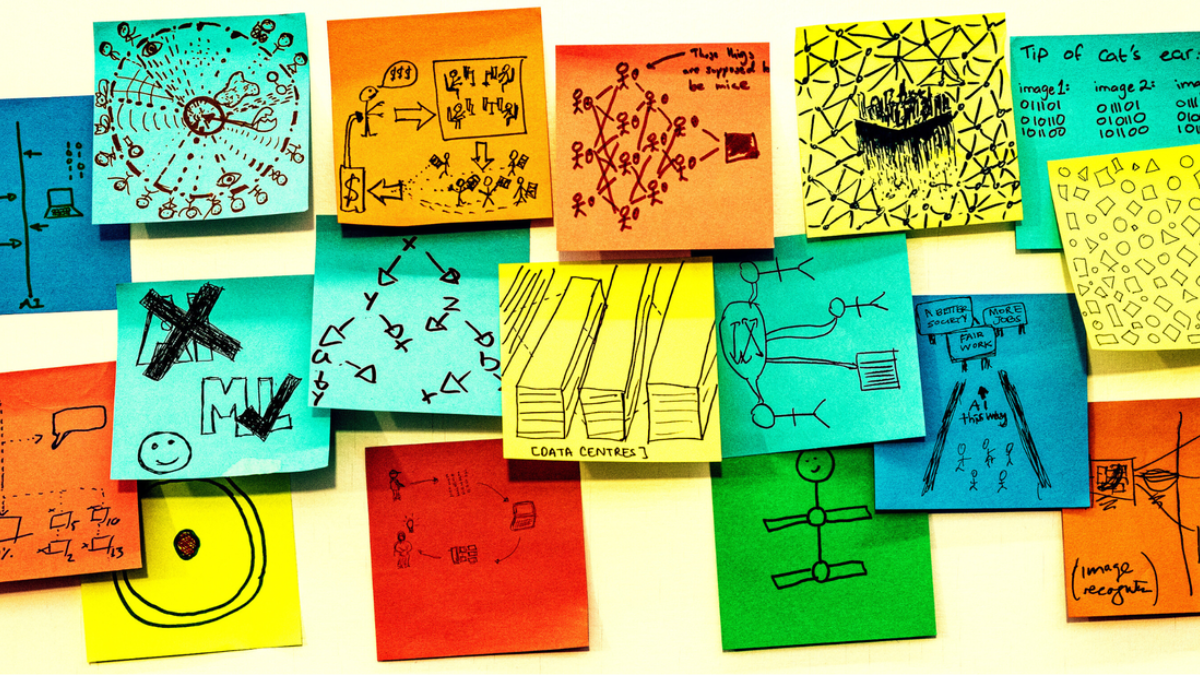Against All Odds: Increasing African Women's Influence on AI Innovation and Policy
Yolanda Botti-Lodovico / Oct 31, 2024Yolanda Botti-Lodovico is the Storytelling and Advocacy Lead at the Patrick J. McGovern Foundation.

Rick Payne and team / Better Images of AI / Ai is... Banner / CC-BY 4.0
Africa is rapidly emerging as a hub for AI innovation. Despite constraints in funding, infrastructure, and access to resources like data and compute, African researchers are building artificial intelligence solutions that address unique challenges and needs across the continent. Among those innovators are women, who are overcoming all odds to take their rightful place in the AI revolution.
In a recent conversation with the Patrick J. McGovern Foundation (PJMF), Linda Bonyo, the Founder of Lawyers Hub and a globally recognized digital law and data governance expert, emphasized women’s achievements across the African AI ecosystem, as well as the persistent challenges that prevent many women from emerging as creators and decision-makers at the highest levels of AI governance. Based in Kenya, Bonyo’s team works on a regional scale, building capacity among stakeholders in the digital and AI policy landscape and supporting African entrepreneurs. Here are a few of her insights:
Women in Africa represent a critical part of the AI ecosystem as creators, innovators, and decision-makers.
Through its African Law and Tech Accelerator, Lawyers Hub works with African tech startups, empowering them to navigate local and regional regulations on emerging technologies and AI. Bonyo highlights two women who are actively driving AI innovation and paving pathways for future AI leaders in Africa.
Pelonomi Moiloa is the CEO of Lelapa AI, an organization focused on tackling data poverty and creating African-owned solutions to challenges African communities face. In addition to building language models trained on Indigenous African languages, Moiloa and her team are enabling more inclusive AI research on the African continent by forming new tech ecosystems for the future. These ecosystems fill a critical gap, according to Bonyo, who notes that “tech innovation and governance often thrive in ecosystems.”
On the capacity-building side, Ethel Cofie founded Women in Tech Africa to train women and girls in tech and hosts convenings to propel women to the forefront of the African and global tech ecosystem. Others like Rebecca Ryakitimbo are both building capacity through the Kuza STEAM Generation initiative and advancing thought leadership on gender mainstreaming in technology and digital policy. Bonyo also highlights the importance of regional capacity-building initiatives, such as the UN Economic Commission for Africa’s initiative to train African girls in coding, which is contributing to a contingent of women AI developers on the African continent. Across its own portfolio, PJMF supports organizations complementing these efforts in sub-Saharan Africa, such as AkiraChix, a Kenya-based organization committed to building women’s technical skills and fostering their agency in the workforce and beyond.
The women leading AI innovation as entrepreneurs and capacity builders also drive progress in rights-oriented, democratic, and representative AI governance. According to Bonyo, women played a leading role in drafting the African Union’s AI strategy, with consultants like Rachel Adams, an expert on AI policy, human and gender rights, and decolonization. She describes this as “the most successful show of how far AI has come within the African continent,” thanks to women and their mentorship.
Despite the drive and advancement of women entrepreneurs, barriers to gender equity persist.
Among the greatest barriers for women in the African AI ecosystem, according to Bonyo, are access to capital and geographical mobility. Most female-led entrepreneurial ventures are more traditional in nature and categorized as informal. As a result, many of these same women founders struggle to access bank accounts, navigate tax laws, and get noticed by venture capital firms, which tend to focus more on male entrepreneurs in Nigeria, Kenya, South Africa, and Egypt.
Lack of geographical mobility affects African entrepreneurs of all genders. But it particularly restricts those women who confront a range of embedded societal and cultural biases, such as local laws that require them to obtain permission from their husbands to apply for a visa. As a result, some women are unable to access Y Combinator or other Silicon Valley investors for support. These same mobility challenges restrict legal experts, policymakers, policy advocates, and other African stakeholders from participating in global governance conversations, from the UN General Assembly to the International Telecommunication Union conferences, to the Internet Governance Forum.
In both the African and global contexts, women have the potential to shape an inclusive AI ecosystem. Bonyo provides four recommendations for local and global institutions to create more pathways for women in AI:
1. Strengthen institutional capacities via capacity building and gender mainstreaming.
Many African institutions tasked with advancing gender equity, such as the National Gender and Equality Commission in Kenya, lack sufficient funding, capacity, and political independence, with members usually appointed by presidential directive. In addition to expanding membership of these commissions, Bonyo notes a need for gender mainstreaming activities across all government agencies, adoption of gender-neutral language, and capacity building for women in power. In the judicial sector, for example, where 4 out of every 10 judges in Africa are women, it’s critical to build technological capacity and strengthen institutional frameworks so that women judges and chief justices can feel empowered to make decisions that improve gender equity across the continent and use technology in ways that bolster human rights and the rule of law.
2. Close gaps in data to better represent women and identify and address gender bias.
The lack of gender-disaggregated data from the African continent challenges gender equity across the policy landscape. According to Bonyo, “AI sits on the bedrock of already broken infrastructure and data poverty.” These gaps can be closed by striving for more diverse and inclusive representation in data sets, improving data collection methods, and monitoring evolving data sets to ensure that the data used by AI speaks to the unique context of communities across the African continent.
3. Prioritize safety.
While Kenya has joined the newly launched International Network of AI Safety Institutes, the continent has not broadly adopted the concept of national safety institutes for AI. Bonyo recommends an approach that “borrows from what the UK and US are already doing” with their respective AI Safety Institutes to ensure an adaptable and integrated approach to AI regulation that aligns on a global scale.
Bonyo also highlights the unique potential of presidential directives, such as the Biden-Harris Executive Order on AI, which has spurred progress across U.S. government agencies on public use of AI. She notes that if a president in the African Union sets a framework for gender-disaggregated data on a national scale, “it’s relatively straightforward for agencies within that nation to implement such a mandate.”
4. Increase funding and visa support for African women to participate in decision-making processes.
African voices represent a critical part of global governance conversations. According to a recent blog from the Atlantic Council, AI has the potential to boost the African economy by an estimated $2.9 trillion by 2030. However, stakeholders across the African Union face countless barriers to participation, not least of which are visa fees and requirements. Bonyo emphasizes the importance of global, multilateral institutions prioritizing travel funding for African stakeholders and decision-makers. She also commends the commitments of the Global Digital Compact to actively increase the representation of women and young people across the Global Majority and expresses hope that these efforts will “prioritize young girls being a part of the global conversation on AI governance” as well.
Committing to a gender-inclusive AI future for Africa
As a champion for African women and inclusive AI policymaking in Africa and beyond, Bonyo highlights her hope for an AI future that represents the lived experiences, creativity, and aspirations of women and girls on the continent. To achieve this vision, she poses a call to action for decision-makers within the African Union and beyond: “We need a comprehensive gender approach for AI – in terms of deployment, safety, and governance.” By reducing silos and aligning policies across sectors to empower a more gender-inclusive AI ecosystem, the unique potential of African women is boundless.
Authors
